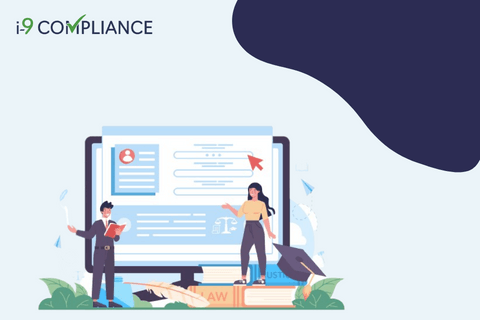Lawmakers Seek to Strengthen E-Verify Program In Bill Mandating Usage By All Employers

March 1, 2023
Lawmakers have worked hard to strengthen E-Verify, the website from the U.S. Department of Homeland Security (DHS).
A representative from Texas introduced the first Legal Workforce Act in 2013 and again in future sessions of Congress. However, many believe it has a better chance of passage this year. As part of this effort, the Legal Workforce Act would have the DHS upgrade the program. It would also require all employers to check the employment eligibility of any hired workers by using E-Verify.
The U.S. Citizenship and Immigration Services (USCIS) runs E-Verify to verify employees’ identity and work authorization by taking information that employers provide from the employment eligibility verification process (Form I-9). It then compares the data to the DHS and Social Security Administration (SSA) records. The process works quickly, typically taking a few minutes, verifying 99.8% of work-eligible employees.
Currently, over a million U.S. employers use E-Verify. However, most states do not mandate its use, with only eight states requiring it.
Should the mandate to use E-Verify pass, it would phase in new hires in six-month increments and apply to all businesses within two years. Additionally, employees that perform agricultural work or services must undergo review through E-Verify within 30 months. The bill would also repeal the requirement for a paper I-9 in favor of a completely electronic employment eligibility check. However, employers may continue using the paper-based system if they want. The bill also protects employers from prosecution if they use E-Verify in good faith and receive an incorrect eligibility confirmation that is not due to any fault on their part.
Penalties would also increase for employers who employ illegal immigrants. For example, the fine for a first-time violation would increase to $2,500 for each illegal worker from $250. In addition, it would include penalties for employers or employees if they intentionally submit false information to E-Verify. Unfortunately, the USCIS does not release data on its approval rates nor disclose information on the fines it has imposed.
The bill would also require that the SSA inform an individual if their Social Security Number has seen a minimum of seven strange uses. Additionally, the bill would instruct the DHS to create programs that would suspend or block an individual if they misused Social Security Numbers.
This bill shows how the rules for employment eligibility constantly change, making it hard for some employers to keep up. The best way to ensure you stay up-to-date with current requirements and correctly complete Form I-9 is to use an electronic I-9 management system. This tool will guide you through the I-9 process and safely store the forms and documentation.
When it comes to your employees, automation makes eligibility verification quick and simple. Ensure compliance today with I-9 Compliance.